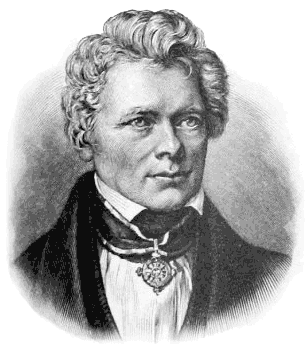
So with my studies in Tübingen 24 days away, I've decided to read a short story by one of Tübingen's most famous alums: Herman Hesse, the author of
Steppenwolf,
The Magic Mountain, and
Siddartha. I've read
Siddartha and loved the sparce and delicate language used by this German to illustrate a beautiful Asian atmosphere. Now I wanted to see what he would do with his
alma mater of Tübingen.
Im Presselschen Gartenhaus is a short story that takes place in Tübingen in the shadow to the world-reknown seminary (
das Stift) with detailed descriptions of the surrounding landscape (
umliegende Lanschaft). Is there any better story for me to read? I mean really.
I found this sentence* in the first couple pages especially captivating. He tacks simple elaborative clauses (sometimes 3 or 4 at a time) on to objects in order to offer different shades of perspective (
die Wahrnehmung). The shades are not complex in themselves, but taken as a whole, Hesse gives his world layers of interpretation. What results is a cadanced language with the simplicity of Hemmingway paired with the meandering quality of Kerouac, I think. I hope you enjoy it . . .
Wie eine bereitstehende Salzlösung oder ein kaltes, stilles Wintergewässer nur einer leisen Berührung bedarf, um plötzlich in Kristallen zusammenzuschießen und gebannt zu erstarren, so war mit jenem Schwalbenfluge dem jungen Dichtergemüt plötzlich der Neckar, die grüne Zeile der stillen Baumwipfel und die schwachdunstige Berglandschaft dahinter zu einem verklärten und geläuterten Bild erstarrt, das mit der erhobenen, feierlich milden Stimme einer höheren, dichterischen Wirklichkeit zu seinen zarten Sinnen sprach. 
(This is Tübingen and the Neckar river running through it.)
This is a clunky translation of my own doing** . . .
"Like a ready-standing salt solution or a cold still wintery pond, needing only a quiet touch, which is suddenly beaten into crystals and banished to freeze, so it was to the young poetic mind with those swallow flights suddenly to the Neckar; the green silhouette of the still tree tops and the weakly hazy mountain countryside behind it, to a transfigured and cleansed picture solidified, speaking with the uplifted cheerful mild voice of a higher more poetic reality to his delicate senses."
*Yes that's just one sentence.
**It wasn't that hard to read in German, but trying to put it into English was a pain. I have a new found respect for translators.
 In his introduction to Ideen, Schelling writes,
In his introduction to Ideen, Schelling writes,



